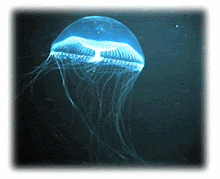
Captain Don Picard is an airline pilot for Contintental Airlines. Don has worked with the airline since 1987 and is a longtime friend. I know it probably sounds strange to hear the name 'Captain Picard' and not think of the Enterprise, but they are not the same person even though they have never seen before in public together. Don has way more hair and has a better taste in music!
Don and I have had many conversations about his fascinating daily routine at work. This week, Don is the subject of this week's interview, and I have included just a few of his answers to some questions that I think everyone probably wants to know about airline pilots.
What is Cockpit Resource Management?
Continental initiated this in the late 1980s and other airlines followed. Under the old school of thought, the captain basically was the sole person who was dictating how to respond to circumstances. Now everyone has a say, but the captain has the final decision.
The idea is that you try to identify threats that are associated with your flight. There are numerous types of threats including the weather, experience levels of crew, going into an airport for the first time or for the first time in a long while, terrain, and maintenance issues. Maybe there isn’t something working right on the airplane and you can still fly safely.
Then you solve and find solutions to find how you are going to manage the threats. Those are things you do as the captain. You come up with a plan how you will deal with stuff you foresee and of course there are things you cannot anticipate. Basically, when you come up with the plan, it is a collaborative process.
A few days ago, we had a system called the auto-breaks that were not working properly. You really don’t need them because you can use the manual breaks by using you foot. The issue is that you are so used to having them and when you are at the so called, ‘high speed regime’ of the takeoff and if you have to abort, you would be likely to rely to rely on the auto breaks. But because they were in operative, I made sure in my briefing with the first officer, ‘Lets remember that if we have to abort the takeoff that we have to use the breaks manually and not rely on the auto brakes.’
And the CRM continues throughout the whole flight. You need to be aware of where you are at all times and that’s why we all go thru the training all the time.
What is the one thing that the public may have a misconception about the people who work for the airline industry?
People probably think that pilots or flight attendants always sleep around. That is not really how it is.
Can you describe the experience of flying overseas on long flights?
If I flew from Houston to Tokyo I find it less tiring to do a 14 hour flight than to do 3 different domestic flights. On the long hauls, we have IROs, the International Relief Officer. They relieve the crew of their duties so that after takeoff and prior to landing the crew gets rest breaks. It is regulated by the FAA. Any flight over 8 hours you will need 3 pilots and anyone over 12 hours you will need 4 pilots. On the Houston to Tokyo flights, we would divide the breaks in half so that I would get a 5 ½ rest period. The person with the most seniority on the flight gets to choose the order with the Captain picking first. Essentially the flight is divided in half.
One you level off from taking off.. You leave about 10:45 am. Around 1130 am the first break would begin and two pilots would use their bunks. They are like bunk beds with a door and a privacy curtain. If you are person like me who can sleep anywhere or at any time, then you could sleep for the next 5 hours. After the break is up, usually around Anchorage, then the next pilots take their breaks. Everyone is back in the cockpit at least an hour from arrival. By getting the sleep on the long flight it made the flight very restful. I always felt awake and aware. So I loved flying the long hauls and did not get fatigued.
Fatigue happens to everyone. In the hotels, if you don’t get sleep at night, that can be a real threat the next day. On domestic flights you are up and down with delays and it is just more tiring on the body.
What was your weirdest experience as a pilot?
I can’t really talk about that

No comments:
Post a Comment